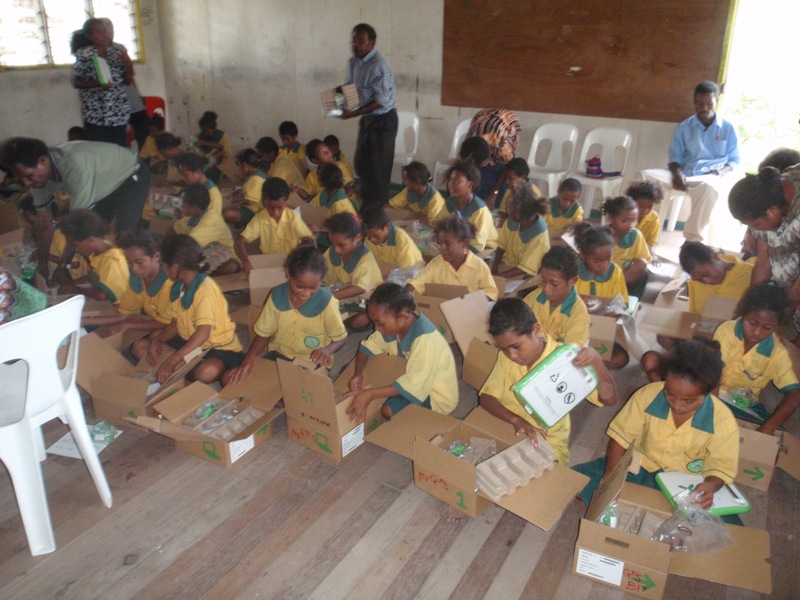Guest post by Jeff Mosenkis of Innovations for Poverty Action. We don’t do enough thinking in the U.S., much less in developing countries, about end of life “palliative” care, helping people with difficult terminal illnesses suffer less. But a lot of suffering happens at the end of life; if your goal is to alleviate suffering, pain management is doable. The BBC has a very interesting story of the woman who singlehandedly brought palliative care to Mongolia. David Evans summarizes a post and paper from Ben Piper at RTI doing cost-effectiveness analysis of technology programs to improve education. Often even when new technologies work, they’re more expensive and the same outcomes could have been achieved through traditional means. Dropping laptops into Peruvian classrooms through the One
Topics:
Jeff Mosenkis (IPA) considers the following as important: academia, aid, computers, development, Education, foreign policy, health, jones act, links, miscellany, news, Technology
This could be interesting, too:
Joel Eissenberg writes The Trump/Vance Administration seeks academic mediocrity
Robert Skidelsky writes Speech in the House of Lords – Conduct Committee
Peter Radford writes My Father’s Disgust
Bill Haskell writes Study Shows Workers Fleeing States With Abortion Bans
Guest post by Jeff Mosenkis of Innovations for Poverty Action.
- We don’t do enough thinking in the U.S., much less in developing countries, about end of life “palliative” care, helping people with difficult terminal illnesses suffer less. But a lot of suffering happens at the end of life; if your goal is to alleviate suffering, pain management is doable. The BBC has a very interesting story of the woman who singlehandedly brought palliative care to Mongolia.
- David Evans summarizes a post and paper from Ben Piper at RTI doing cost-effectiveness analysis of technology programs to improve education. Often even when new technologies work, they’re more expensive and the same outcomes could have been achieved through traditional means.
- Dropping laptops into Peruvian classrooms through the One Laptop Per Child program didn’t do much (surprise).
- Don Green is teaching a 3-day advanced course in field methods at J-PAL in August.
- Economist Jess Hoel offers advice for women academics on careers, including publishing, accountability groups, and networking. Full notes on her website, http://www.jessicabhoel.com/ (top right).
- Reuters reports the President is about to sign an executive order requiring 100% of U.S. food aid to be transported on U.S. ships (up from the current 50%) to boost U.S. jobs. This might be a problem for anybody counting on that food because of low U.S.-based shipping capacity. The requirement would increase costs while introducing significant delays.
- We already have a policy experiment along similar lines in the U.S.: the Jones Act requires cargo being shipped between ports in the U.S. to be carried on U.S. ships, and Planet Money documents how nearly everybody hates it. When New Jersey was ready to buy 40,000 tons of road salt from Maine during a harsh winter the only ship available to take it that qualified under the Jones Act was a small barge. So they did it by making lots of trips to transport it in small batches, passing by the big ship that was already in port. Joe Stiglitz explained that the Jones Act costs the U.S. a quarter million dollars per job saved.
On the plus side, maybe jacking up the cost of food aid would move more aid to cash?
I’ll let this one speak for itself
The kinds of sentences that give economists a bad rep.
(Part of a very cool new paper on divorce's impact on FLFPR) https://t.co/wGncuzMyEp pic.twitter.com/GHMLegldNI— Dev Patel (@dev_a_patel) June 29, 2017
I don’t know why economists have a bad rep – this from a neuroscientist who studies the trolley dilemma (people are generally willing to kill one person to save five by flipping a switch, but not by pushing the one person in front of the trolley to stop it).
The article goes on to describe a student project that found Buddhist monks also in that group. So, interesting intellectual bedfellows.

